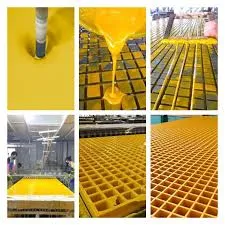
-
 Afrikaans
Afrikaans -
 Albanian
Albanian -
 Amharic
Amharic -
 Arabic
Arabic -
 Armenian
Armenian -
 Azerbaijani
Azerbaijani -
 Basque
Basque -
 Belarusian
Belarusian -
 Bengali
Bengali -
 Bosnian
Bosnian -
 Bulgarian
Bulgarian -
 Catalan
Catalan -
 Cebuano
Cebuano -
 China
China -
 China (Taiwan)
China (Taiwan) -
 Corsican
Corsican -
 Croatian
Croatian -
 Czech
Czech -
 Danish
Danish -
 Dutch
Dutch -
 English
English -
 Esperanto
Esperanto -
 Estonian
Estonian -
 Finnish
Finnish -
 French
French -
 Frisian
Frisian -
 Galician
Galician -
 Georgian
Georgian -
 German
German -
 Greek
Greek -
 Gujarati
Gujarati -
 Haitian Creole
Haitian Creole -
 hausa
hausa -
 hawaiian
hawaiian -
 Hebrew
Hebrew -
 Hindi
Hindi -
 Miao
Miao -
 Hungarian
Hungarian -
 Icelandic
Icelandic -
 igbo
igbo -
 Indonesian
Indonesian -
 irish
irish -
 Italian
Italian -
 Japanese
Japanese -
 Javanese
Javanese -
 Kannada
Kannada -
 kazakh
kazakh -
 Khmer
Khmer -
 Rwandese
Rwandese -
 Korean
Korean -
 Kurdish
Kurdish -
 Kyrgyz
Kyrgyz -
 Lao
Lao -
 Latin
Latin -
 Latvian
Latvian -
 Lithuanian
Lithuanian -
 Luxembourgish
Luxembourgish -
 Macedonian
Macedonian -
 Malgashi
Malgashi -
 Malay
Malay -
 Malayalam
Malayalam -
 Maltese
Maltese -
 Maori
Maori -
 Marathi
Marathi -
 Mongolian
Mongolian -
 Myanmar
Myanmar -
 Nepali
Nepali -
 Norwegian
Norwegian -
 Norwegian
Norwegian -
 Occitan
Occitan -
 Pashto
Pashto -
 Persian
Persian -
 Polish
Polish -
 Portuguese
Portuguese -
 Punjabi
Punjabi -
 Romanian
Romanian -
 Russian
Russian -
 Samoan
Samoan -
 Scottish Gaelic
Scottish Gaelic -
 Serbian
Serbian -
 Sesotho
Sesotho -
 Shona
Shona -
 Sindhi
Sindhi -
 Sinhala
Sinhala -
 Slovak
Slovak -
 Slovenian
Slovenian -
 Somali
Somali -
 Spanish
Spanish -
 Sundanese
Sundanese -
 Swahili
Swahili -
 Swedish
Swedish -
 Tagalog
Tagalog -
 Tajik
Tajik -
 Tamil
Tamil -
 Tatar
Tatar -
 Telugu
Telugu -
 Thai
Thai -
 Turkish
Turkish -
 Turkmen
Turkmen -
 Ukrainian
Ukrainian -
 Urdu
Urdu -
 Uighur
Uighur -
 Uzbek
Uzbek -
 Vietnamese
Vietnamese -
 Welsh
Welsh -
 Bantu
Bantu -
 Yiddish
Yiddish -
 Yoruba
Yoruba -
 Zulu
Zulu
fiber water tank
The Importance of Fiber Water Tanks in Modern Water Storage Solutions
In today's world, as we face increasing water scarcity and the need for efficient resource management, innovative solutions for water storage are becoming essential. One such solution that has gained traction is the fiber water tank. These tanks utilize advanced materials that offer numerous benefits over traditional water storage options, making them an attractive choice for various applications.
Fiberglass, by its very nature, is corrosion-resistant and lightweight, making fiberglass water tanks a prime candidate for storing potable water. Unlike conventional steel or concrete tanks that are prone to rusting or degradation over time, fiber tanks can withstand harsh environmental conditions, thus ensuring the safety and longevity of the stored water. This durability is crucial, especially in regions where water quality and safety are paramount.
One of the most significant advantages of fiber water tanks is their ease of installation. These tanks can be prefabricated and transported to the site, allowing for quick setup and minimal disruption. This feature is particularly beneficial for emergency response situations, such as disaster relief, where the immediate need for clean water is critical. The lightweight nature of fiberglass also means that they can be installed on various terrains without the need for extensive groundwork or heavy machinery.
fiber water tank

Moreover, fiber water tanks are incredibly versatile in size and design. They can be manufactured in a range of dimensions to suit different needs, from small residential tanks to large-scale storage solutions for agricultural or municipal use. This customization allows users to optimize space efficiently while ensuring they have the capacity required to meet their water demands.
Another significant aspect is the low maintenance requirements associated with fiber water tanks. Once installed, they typically do not require the same level of upkeep as traditional materials. Their smooth surfaces discourage the buildup of algae and sediment, which can be a common issue with concrete or metal tanks. This characteristic not only helps in maintaining water quality but also reduces the frequency of cleaning.
In addition, the environmental impact of fiber water tanks is worth noting. Many manufacturers are now producing fiberglass tanks using eco-friendly processes and recyclable materials. This approach not only reduces the carbon footprint associated with production but also ensures that these tanks contribute to sustainable water management practices. Given the increasing awareness of environmental issues, such attributes are becoming more significant to consumers.
In conclusion, fiber water tanks represent a forward-thinking approach to water storage that aligns with contemporary environmental and logistical considerations. Their resilience, ease of installation, versatility, and lower maintenance needs position them as a viable option for various sectors, including agriculture, industry, and domestic use. As the global demand for efficient water management solutions continues to rise, embracing innovative technologies like fiber water tanks will be crucial for ensuring a sustainable water future. Investing in such solutions can help communities better navigate the challenges of water scarcity and quality, ultimately contributing to a healthier, more sustainable planet.









